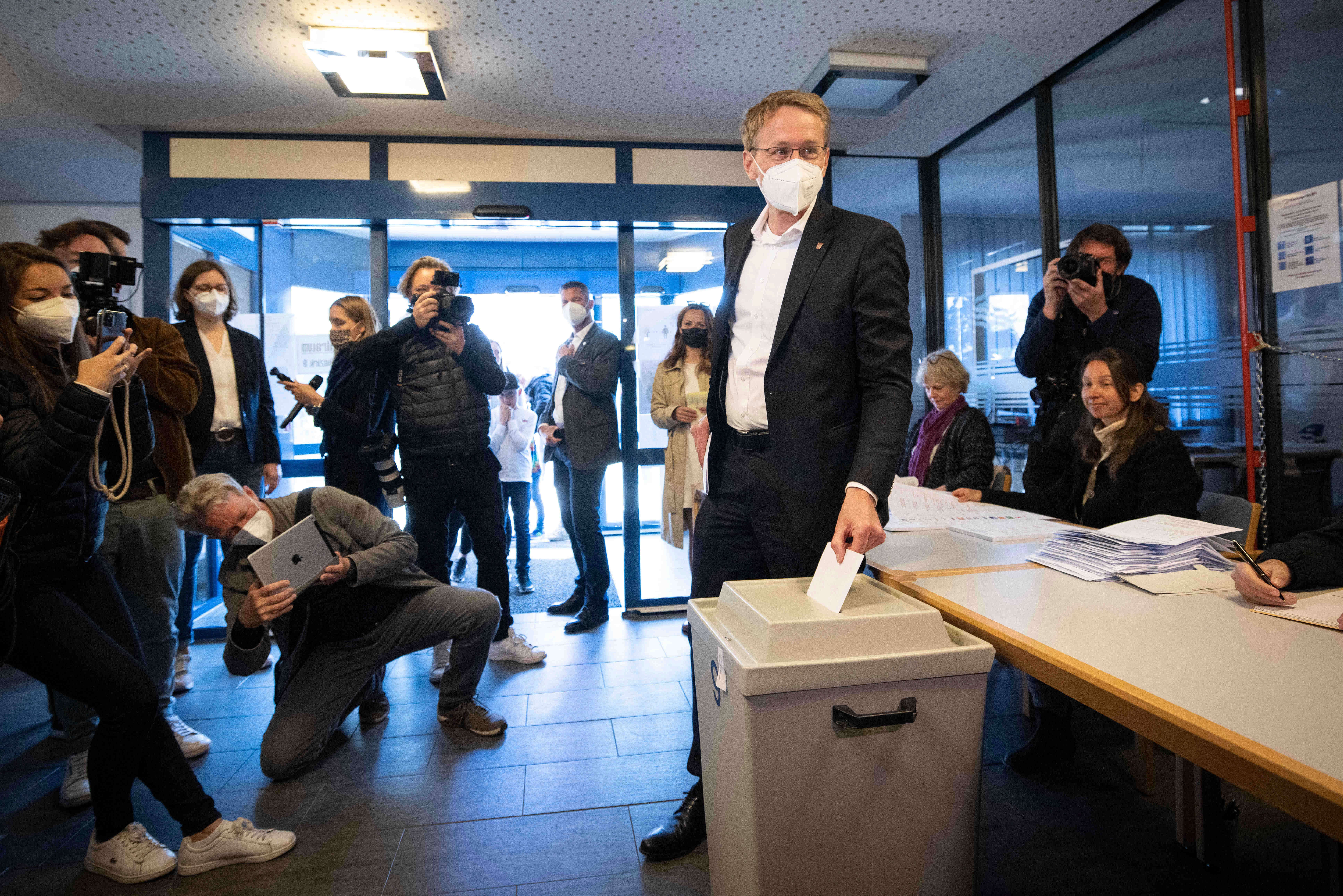German state election offers test amid Ukraine crisis
The northern German state of Schleswig-Holstein is holding an election Sunday that offers a ballot box popularity test Chancellor Olaf Scholz’s government amid its handling of the war in Ukraine

Your support helps us to tell the story
From reproductive rights to climate change to Big Tech, The Independent is on the ground when the story is developing. Whether it's investigating the financials of Elon Musk's pro-Trump PAC or producing our latest documentary, 'The A Word', which shines a light on the American women fighting for reproductive rights, we know how important it is to parse out the facts from the messaging.
At such a critical moment in US history, we need reporters on the ground. Your donation allows us to keep sending journalists to speak to both sides of the story.
The Independent is trusted by Americans across the entire political spectrum. And unlike many other quality news outlets, we choose not to lock Americans out of our reporting and analysis with paywalls. We believe quality journalism should be available to everyone, paid for by those who can afford it.
Your support makes all the difference.The northern German state of Schleswig-Holstein was holding an election Sunday that offers a ballot box popularity test for Chancellor Olaf Scholz’s government amid its handling of the war in Ukraine.
Polls before the election for the state legislature point to a solid lead for the center-right Christian Democratic Union, the party of former Chancellor Angela Merkel. The CDU — which is in opposition at the national level — has led Schleswig-Holstein since 2017, governing in a coalition with the environmentalist Greens and the pro-business Free Democrats (FDP).
The vote comes after a turbulent few months for the Social Democrat's Scholz, who took office in December at the head of a three-party coalition government with the Greens and the Free Democrats. In recent weeks, Scholz has faced criticism for his approach to the war in Ukraine.
Germany broke with tradition after Russia’s invasion to supply arms to Ukraine but has been criticized by Kyiv for perceived hesitancy and slowness in providing material.
Sunday’s election is the second of three state elections within two months that will set the political tone for the coming year.
In late March, Scholz’s Social Democrats secured a major victory in the small western state of Saarland, which the CDU had led since 1999. The most important vote, on May 15, is in Germany’s most populous state, North Rhine-Westphalia.
Schleswig-Holstein is Germany’s northernmost state, home to approximately 2.9 million people. Ahead of Sunday’s vote, Daniel Günther, the incumbent governor from the CDU, held a clear lead over the Social Democrats' Thomas Losse-Müller and the Greens’ Monika Heinold.
The vote is expected to be a bright spot for the CDU, which has suffered losses at the state and national level in recent months. After last fall’s federal election, the party was relegated to the opposition on the national level for the first time in 16 years.